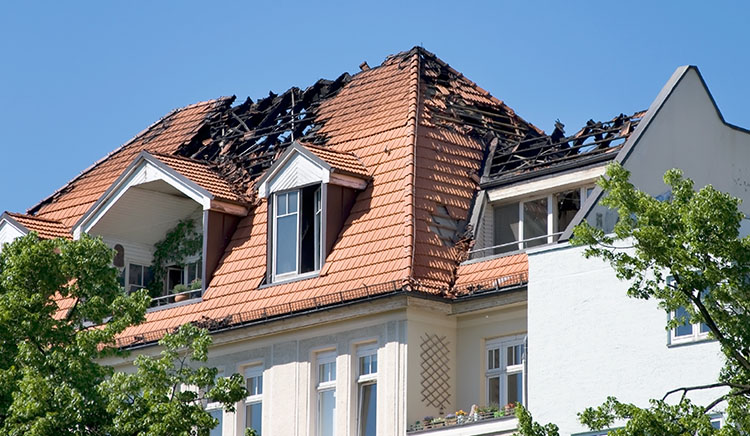Ask anyone who has experienced a home or business fire: They will describe the level of disruption it can cause. For most fires, including some serious ones, restoration is a viable option. With the assistance of your insurer and a team of fire recovery experts, your situation can quickly return to normal.
With extreme fire damage, demolition is the only reasonable course of action. Starting over is never a pleasant prospect, but sometimes, it’s not financially feasible to do otherwise.
The worst case is when a structure that seems recoverable is not. The underlying damage may be more severe than first thought. The correct decision would have been to demolish it, saving valuable time and money.
If you ever become the victim of a home or business fire, you will play a key role in the decision-making process. How you respond may help determine if demolition is part of the solution.
Your Role in the Decision
It’s a good bet that dealing with the aftermath of a fire is a new experience for you. The success of the recovery depends upon how quickly you respond.
The first and most important step is to make sure that everyone has evacuated the premises and is safe. Hopefully, the fire department is already on its way. Next, call your insurer to open a claim.
The Insurer’s Role in the Decision
During that first call, you will learn everything you need to know to begin the recovery. The takeaway will be a to-do list that might include:
- Protecting the structure
- Documenting the damage with photos
- Selecting fire damage remediation professionals
- Starting the salvaging and cleanup
It’s important to remember that you and your insurer share a common goal. That is to restore the structure to your satisfaction. The insurer has the added responsibility of making this happen as inexpensively as possible. It is in both your best interests to work through this list together as quickly as possible.
Protecting the Damaged Structure Is the Key to Avoiding Demolition
Your structure has already suffered from fire, water, and smoke damage. Some of this damage is from the fire itself. The rest is from the actions taken to extinguish the fire. As a result, you may have an abandoned structure. Without protection, it can incur additional damage from:
- Weather
- Arson
- Vandalism
- Theft
- Illegal activities
- Squatters
You and the insurer have a shared interest in preventing these problems. The insurer may pay to:
- Apply tarps
- Board-up windows
- Enclose the structure in protective fencing
Document the Damage for the Insurance Adjuster
These days, it seems like just about everyone carries at least one smartphone with a camera. They usually have room for a multitude of pictures and are perfect for this situation.
First, you will want pictures for your records. If there is ever a question about what happened or how the structure looked after the fire, you will have them as a reference.
Second, there may be situations where the insurance adjuster cannot come right away. The adjuster must see the original damage. However, the cleanup should not wait for the adjuster’s visit. Comprehensive photographic documentation allows the adjuster to see the damage as it looked before the cleanup started.
The Adjuster May Recommend Demolition as the Best Option
The adjuster’s job is not to tell you what to do. It is to recommend a course of action and tell you how much the insurer will pay. When the expected cost of restoration exceeds the cost of replacement, demolition is most often the recommendation. It’s important to note that immediate fire damage demolition eliminates the need for implementing most of the structure protection.
Select a Firm To Perform the Restoration
Hopefully, the adjuster determines that the structure is salvageable. Now you need to find a team of fire recovery experts with all the skills and equipment necessary to perform the restoration. Your insurer’s preferred vendor list is an excellent place to start.
Continue Cleaning and Salvage Until the Recovery Experts Arrive
Clean up and salvage what you can if you can do this safely. Remove vital records, keepsakes, and other valuables. Collect items to be sent out for cleaning or restoration.
Once the fire recovery team arrives, the best course of action is to get out of the way and let them do their jobs. The team will be with you until the fire damage demolition or restoration is complete. With the job finished, you will be a fire recovery expert in your own right.





